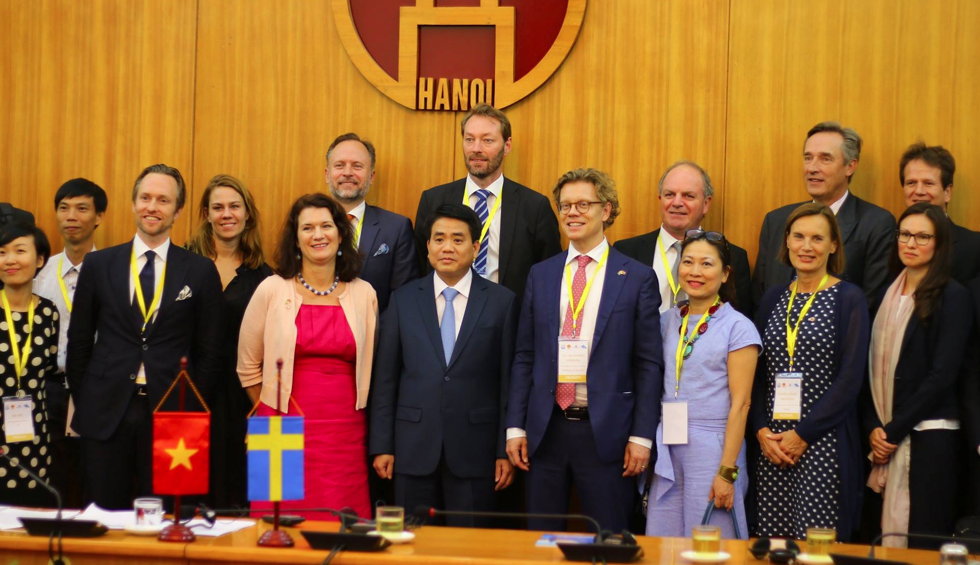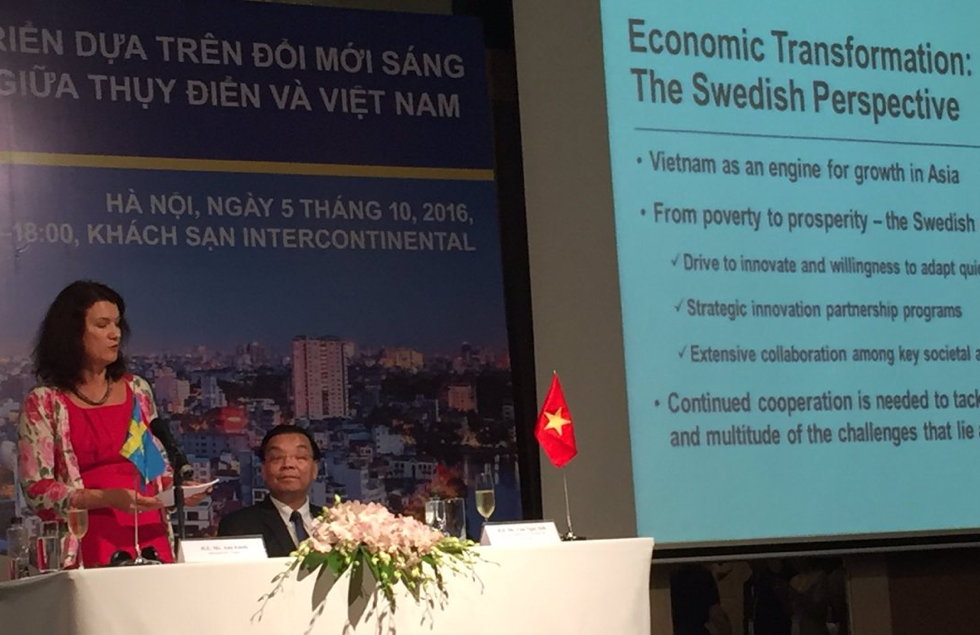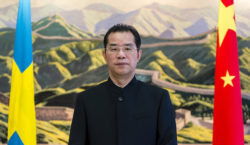What is claimed as the “biggest ever” trade delegation from Sweden is in Vietnam during 5 – 6 October 2016 (though Prime Minister Carl Bildt’s delegation back in the spring of 1994 brought more business participants) , headed by Ms Ann Linde, Swedish Minister for EU Affairs and Trade. The delegation include of 18 of the “finest companies that Sweden has to offer.”

The delegation aims to discuss innovative and sustainable Swedish solutions and investments in key sectors of importance to the Vietnamese economy, such as infrastructure and manufacturing.
During the visit, the Minister and the Swedish delegation will meet with top leaders of cities, ministries and business community, to discuss Swedish-Vietnamese business relations. Notably, they will meet leaders of People’s Committee of Ho Chi Minh City, People’s Committee of Hanoi, Ministry of Trade and Industry, Ministry of Transport, Ministry of Foreign Affairs, Ministry of Education and Training and Ministry of Science and Technology. Minister Ann Linde will have a very important bilateral meeting with Prime Minister Nguyen Xuan Phuc.
There will be two high-profile events organised on this occasion. First is a joint round table on “Fostering Innovation Led Growth – Sharing best practices from Sweden and Vietnam”; jointly organised with the Ministry of Science and Technology. It will be followed by a seminar on “Creating Sustainable Societies – Sharing best practices from Sweden and Vietnam” to discuss how Sweden and Vietnam can share best practices to mutually develop in this field. The seminar is organised in partnership with the Ministry of Trade and Industry.

Ann Linde, Swedish Minister for EU Affairs and Trade said “the Swedish government has adopted an ambitious export strategy aiming at increasing trade and boost participation of Swedish companies in the global economy. Bilateral trade and investments in Southeast Asia, the growth engine of the world, forms an important part of this aim. By having the second biggest growth rate in the world, Vietnam has a key role to play in the region. With the implementation of the progressive Free Trade Agreement, Swedish trade with Vietnam, and Swedish companies investing in the country, would certainly grow”.
Vietnam is one of Asia’s fastest growing economies, recording an average of 6% growth in the last two decades. This growth has seen a rapidly growing middle class emerging, which is expected to grow from 12 million people in 2012 to 33 million in 2020. This new middle class is increasingly consuming various products.
With this growth, the business world and public at large expect public transport solutions that allow people to commute smoothly, reduce congestion, improve public health and enhance the quality of life, as well modern energy solutions that provide good quality power supply with low down times. At the same time, the manufacturing solutions of tomorrow, establishing Vietnam as a manufacturing hub, are expected to be safe, efficient and long lasting, producing products safe to consume. The environmental impacts of all these solutions must be cut to meet global targets and demands for greater sustainability.
Sweden’s focus on innovation is evident from the country’s high spending on R&D – Sweden spends 3.6% of GDP on research, more than the EU average of 3%. The country’s prominence in innovation is also noted through the fact that several global companies known for their innovative solutions are Swedish. One of the keys to Sweden’s success in innovation is the widespread acceptance of the Triple Helix Concept, the seamless collaboration between government, academia and business in promoting, facilitating and conducting R&D.
Furthermore, environmental awareness, early environmental regulation and an innovative and industrious society, have made Sweden one of the world’s most sustainable countries. To support this, the Government has allocated SEK 400 million for research and development of environment technology.
As for manufacturing solutions, for example within the area of food & beverage and wood processing, Swedish solutions are highly competitive due to constant adoption of new technologies, innovation and enhancement in productivity & production technology. With 75 per cent of the business R&D expenditure in Sweden being focused on manufacturing, new sustainable innovations that enhance productivity, automation, and efficiency are continuous.
Source: Embassy of Sweden, Hanoi


